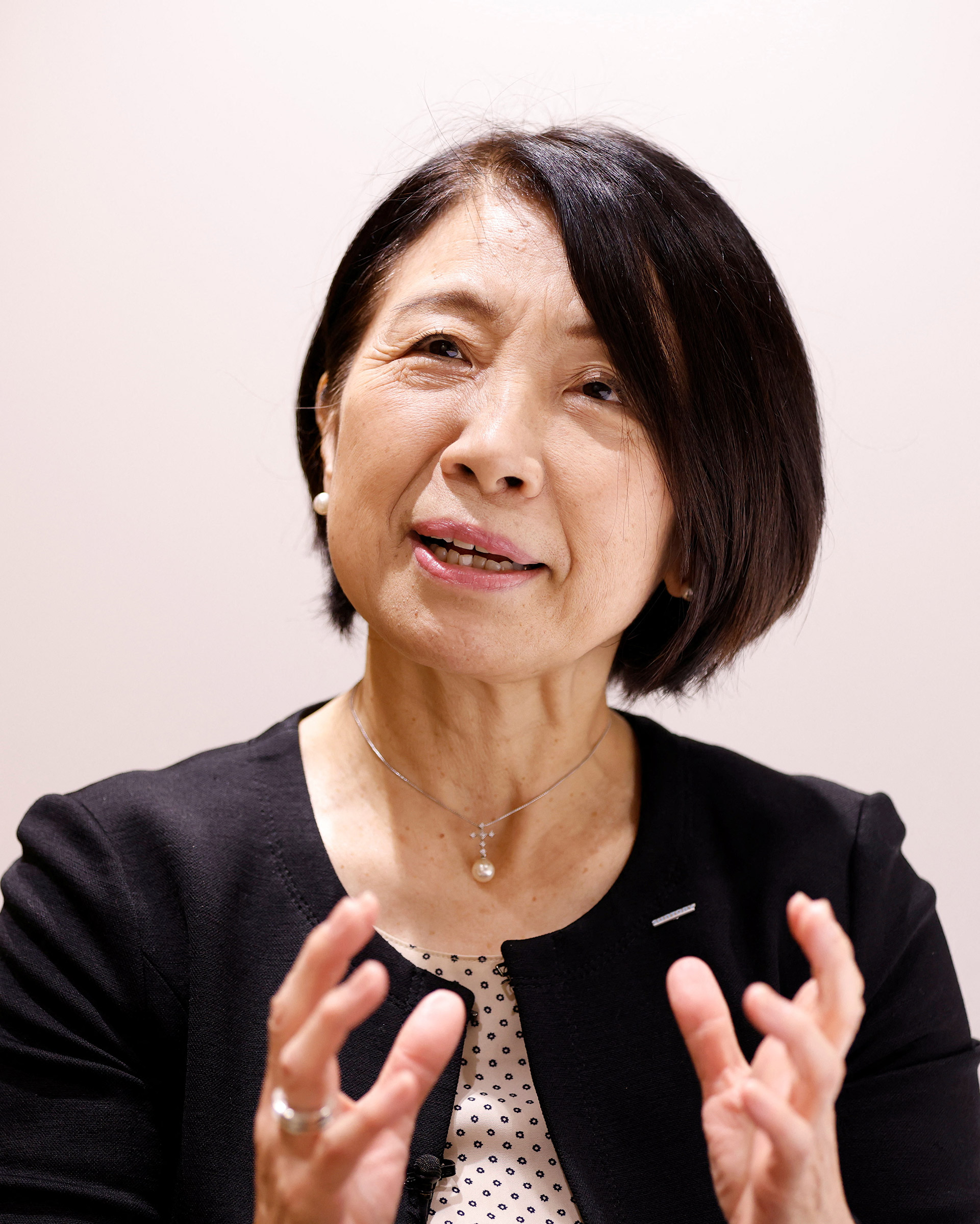
You don’t rise to the top of Japan’s most venerable whiskey company without the occasional hangover. So it’s no surprise that Makiko Ono—who on March 24 becomes CEO of Suntory Beverages and Food, part of a conglomerate best known for producing Jim Beam and Maker’s Mark—has advice on a post-libation restorative. “When I was younger, energy drinks,” she says.
A more stubborn headache that Ono faces is getting women into the upper echelons of business. Worth some $10.4 billion, Suntory is the most valuable company under female leadership in Japan, where less than 1% of the top stratum of listed firms have a woman as CEO. Women occupy only 8% of board seats at Japanese public companies, compared with 26% in the U.S. and 45% in France. Though Japan boasts the world’s third- largest economy, it ranked 116 out of 146 countries in the 2022 World Economic Forum gender-gap report.
Read More: Japan Is Trying to Revitalize Its Economy. Naomi Koshi Wants to Make Sure Women Aren’t Left Behind
It’s a problem that Ono, 62, is determined to address internally at Suntory. After she takes over, four of the company’s nine board directors will be female; Suntory aims for 30% of managers to be women by 2030, compared with just 13% today. “We are committed to designing a career path to promote women to management positions,” says Ono, who has spent her entire four-decade career at Suntory.
Ono came to the company after studying Portuguese in college, inspired by a love of Brazilian bossa nova music. She soon became the company’s first female employee to be stationed overseas, helping to arrange the purchase of a winery in France’s Bordeaux region. She was also instrumental in a major push into European soft drinks in the 2000s, during which Suntory purchased Britain’s Lucozade and Ribena brands, and she later ran French soda maker Orangina.
Today, Suntory earns over half its sales revenue from foreign markets and Ono says her overseas experience was key to her career development. Had she stayed in Japan, Ono says her responsibilities would have been strictly defined by her department. But given the slimmer corporate structure aboard, she had to assume a variety of different roles, whether negotiating bank loans, commercial sales, product development, or marketing. “My experiences overseas empowered me a lot,” she says. “I also learned the mindset of thinking, deciding and working by myself.”
The question is how Japan can empower women to achieve similar success. It’s been a decade since former Prime Minister Shinzo Abe touted a “womenomics” policy of raising female participation in the labor force. But the results have been uneven and the glass ceiling refuses to yield. Ono says the Japanese government should come up with a “concrete action plan” since policy implementation is too often left to individual companies. “No matter how motivated women are, it is still sometimes difficult for them to advance in the workplace,” says Ono. “Maybe there is still a lack of understanding from their supervisors, husbands, or people around them.”
Ono, who is single, admits that she probably wouldn’t have reached her leadership role had she chosen to raise a family—but says women in the company no longer have to make such a stark choice. “Now 100% of our female employees who gave birth return to work,” she says.
It’s a new culture that she’s proud to have helped forge, hoping others will take heed. Asked whether she has a message for young women trying to build a career in business, Ono doesn’t hesitate. “When opportunity comes, just give it a try,” she says. “Even if you fail, you won’t be stuck with it for the rest of your life, so take on challenges with an open mind.”
—With reporting by Mayako Shibata/Tokyo
More Must-Reads from TIME
- Why Biden Dropped Out
- Ukraine’s Plan to Survive Trump
- The Rise of a New Kind of Parenting Guru
- The Chaos and Commotion of the RNC in Photos
- Why We All Have a Stake in Twisters’ Success
- 8 Eating Habits That Actually Improve Your Sleep
- Welcome to the Noah Lyles Olympics
- Get Our Paris Olympics Newsletter in Your Inbox
Write to Charlie Campbell at charlie.campbell@time.com